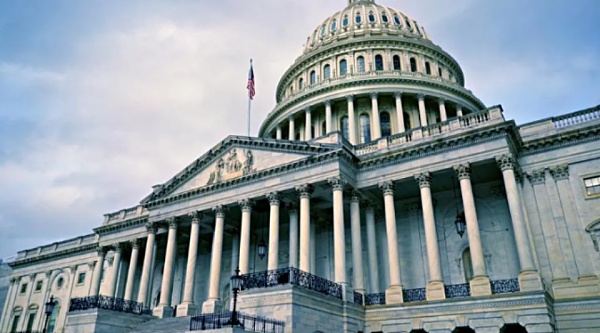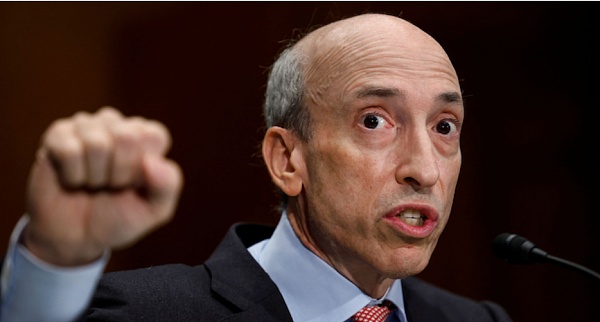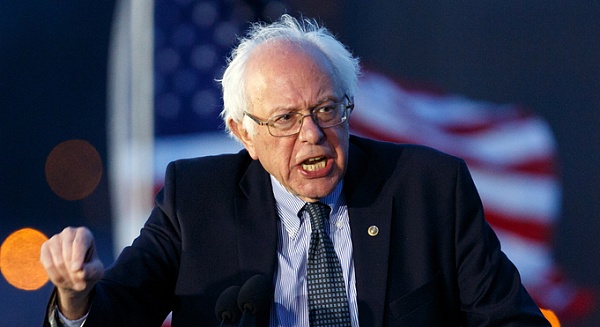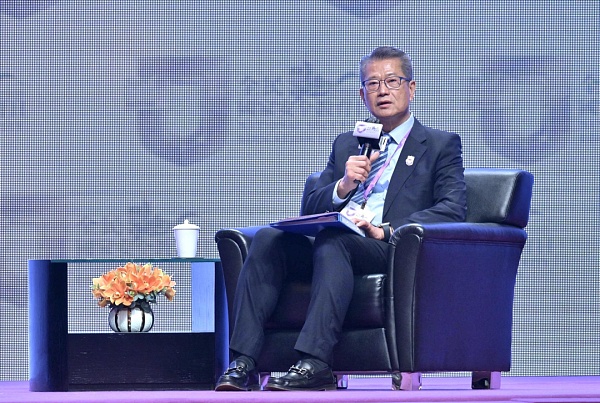Interpreting the digital asset bill that may be introduced before the 24th US presidential election
Decoding the digital asset bill expected before the 24th US presidential election. 
Before the November 2024 US presidential election, a bill on digital currencies may be introduced. The bill, which has no formal name yet, may be called the Digital Asset Market Structure Act and covers many key issues.
Completing this work before the presidential election is crucial because as the election approaches, the partisan divide intensifies and the bill becomes increasingly difficult to pass. Two years ago, there was no clear difference between the Democratic and Republican parties on issues such as digital assets and Bitcoin. It was not clear which party was particularly supportive or opposed. However, in the past year or two, the Republican Party has become increasingly supportive of the development of digital assets, while the Democratic Party, under the leadership of Elizabeth Warren and the chairman of the SEC, has been opposed to the development of digital assets.

- Hong Kong VASP License Exam: Who Will Be the Lucky One to Obtain the License?
- CEO of Hong Kong Securities and Futures Commission: Cryptocurrency trading is an important component of the virtual asset ecosystem.
- Hong Kong banks refuse to open accounts despite new cryptocurrency regulations? How are regulatory agencies responding to these concerns?
On June 6th, the day the SEC sued Coinbase, the chairman of the SEC stated in front of the media that the United States does not need more digital currencies because there is already a digital dollar currency. This is the first time he has expressed his opinion so clearly, and previously his statements were more ambiguous. He said that he could accept Bitcoin at most, and other stablecoins and Ethereum do not need to exist. The US dollar will always be the world’s number one. The draft of the Digital Asset Market Structure Act was completed at the end of May, and the hearing held on June 6th was to discuss this draft and listen to many opinions.
What was discussed at the hearing?
Bernie Sanders, a veteran congressman who has been in politics for over 40 years and is 84 years old this year, has long been respected for advocating for the interests of low-income people. Although he has no affection for digital assets, he still believes that the United States needs a bill on digital assets to prevent events like FTX from happening again. He is concerned that the draft bill may be biased towards the CFTC and may reduce the power of the SEC, so he wrote a letter to the chairman of the SEC to ask about the impact of the bill on regulatory scope and his recommendations for the bill. At the same time, he also wrote a letter to US Treasury Secretary Yellen to ask about the impact of the bill on the stability of the US financial system and whether it conflicts with the policies of the US Treasury Department and the Financial Stability Oversight Committee.

The letter was sent last Friday and it is hoped that a reply will be received by Friday. However, the SEC chairman and Yellen are both very busy, and with the draft being 162 pages, it is difficult for them to give a detailed response in a short period of time. This urgent situation is due to the upcoming July 4th Independence Day holiday where members of Congress will be on vacation for a few days. The chairman of the Financial Services Committee hopes to have the draft passed by internal voting before the full House of Representatives votes in the second week of July. The two drafters of the bill are working hard to secure support from more than half of the House of Representatives.
The House of Representatives is controlled by the Republican Party and the bill is likely to pass. However, the situation is more complicated in the Democratic-controlled Senate. Two senators who support the development of digital assets have temporarily set aside their own proposal and are now fully supporting the House bill. They need to garner more support in the Senate, which will be delayed until next year.
After the bill is passed by the House of Representatives, it will be reviewed and revised by the Senate. Then, the Senate and the House of Representatives will negotiate and form a final version, which will be submitted to the President for signing. Only after the President signs, will the bill become law. This process may take several months, or even extend to the 2024 US presidential election.
Now let’s take a look at the main contents of the draft:
The draft is divided into four parts:
1. Various important definitions, SEC and CFTC will jointly formulate rules and temporary registration systems.
-
Including the definition of blockchain,
-
The definition of blockchain network
-
The definition of blockchain protocol
-
The definition of decentralized network
-
The definition of decentralized institutions
-
The definition of digital assets
-
The definition of digital asset issuers
-
The definition of the maturity date of digital assets
-
The definition of digital commodity-like assets
-
The definition of decentralized end-users
-
The definition of functional blockchain networks
-
The definition of payment stablecoins
2. Exemption of digital assets
The exemption of digital assets refers to a type of digital asset that is not subject to the current securities law if it meets several conditions. There are many contents in it, and they can be abbreviated into four items.
-
The total amount of digital assets sold by the issuer within the past 12 months does not exceed 75 million US dollars.
-
The amount of digital assets purchased by non-qualified investors, who have lower income and assets, in the past 12 months is less than the larger of the following two numbers: 5% of the purchaser’s annual income or 5% of the total assets.
-
A single purchaser’s holdings of this digital asset cannot exceed 10% of the total amount, which may cause centralization risks.
-
The traded item is not a stock or bond.
If these four conditions are met, and the issuer and intermediaries submit applications to the Securities Regulatory Commission in accordance with the provisions of the draft, and pass the review, then this digital asset is considered exempt. Therefore, it is relatively loose in supervision, giving the issuer a buffer period and enough time to develop a project. However, a new disclosure mechanism has also been established for digital asset issuers to tell them which information needs to be prepared for the public.
In addition, the issuer believes that its project is sufficiently decentralized, and can apply to the Securities Regulatory Commission for decentralized certification. With decentralized certification, it is easier to be recognized as a commodity. Decentralized certification, not the only condition but the most important one, means that the blockchain network is a functional network, which refers to the functions of value storage and community governance, rather than agreements between issuers and holders about dividends.
3. How intermediaries of digital assets register with the SEC and CFTC.
How Various Intermediaries of Digital Assets Register with the CSRC contains a lot of content, among which the first item is the most important, that is, payment-based stablecoins and bulk commodity-based digital assets do not need to do so. There are many types of stablecoins, and their functions, such as USDC, are used for payments and are not regulated by the CSRC.
How Various Intermediaries of Digital Assets Register with the CFTC gives the CFTC new jurisdiction, allowing digital commodity-based products to be regulated by the CFTC. The spot market for bulk commodities such as gold is unregulated, and if you and I go to a store to buy two gold bars, no one will regulate it. However, derivatives of gold, such as futures and options contracts, are regulated and supervised by the CFTC. Currently, there is no one regulating the spot market for digital commodity-based products such as Bitcoin and Ethereum. The draft is prepared to allow the CFTC to regulate it, so many trading platforms, such as Coinbase, will have to register with both the CFTC and the SEC.
Fourth, the SEC and CFTC must establish new branches to support technological innovation.
Each item contains many important contents, and the main content is that the SEC must establish an Innovative Financial Technology Strategic Center, which must report to the SEC every year, and the CFTC must establish a CFTC Lab as an information source for financial technology innovation. It is also a forum established by the regulator for innovators to better understand the regulatory agency, which must report to the CFTC every year. The SEC and CFTC must also jointly establish a Digital Asset Advisory Committee, which will provide advice specifically for the SEC and CFTC, and is equivalent to a think tank.
Overall, I personally like this draft. It can clarify things and give the regulatory power of the spot market for digital commodity-based products to the CFTC, which will let the CSRC manage fewer things. Of course, this still requires advice from all parties, and we need to listen to what the chairman of the CSRC and Yellen have to say. Negotiations and compromises between the two parties, as well as revisions to the draft, will take a long time, and we can also expect that digital assets will cause more controversy on the US political stage in the coming months. Politicians will closely follow public opinion in order to make wise decisions on digital currency bills. This means that the fate of digital assets in the future will depend largely on the views and attitudes of American voters.
But we will eventually have formal laws. AIying will continue to keep up with the latest developments and update as more information becomes available.
We will continue to update Blocking; if you have any questions or suggestions, please contact us!
Was this article helpful?
93 out of 132 found this helpful
Related articles
- Commonwealth Bank of Australia suspends some cryptocurrency payments to ensure investor asset security
- Comparison of Cryptocurrency Policies between Hong Kong and Singapore
- Hong Kong Monetary Authority and Central Bank of the UAE Strengthen Cooperation on Virtual Asset Regulation and Development
- Notice of the General Office of the People’s Government of Beijing Municipality on Printing and Distributing “Several Measures to Promote the Innovative Development of General Artificial Intelligence in Beijing”
- Will the cryptocurrency policy in the US and Canada see a new direction in the 2024 presidential election?
- Interpretation of the "2020 Cryptocurrency Act": New Ideas for the Cryptocurrency Regulation Model
- Investigation | After the ban is lifted, Indian investors are more positive about cryptocurrencies






